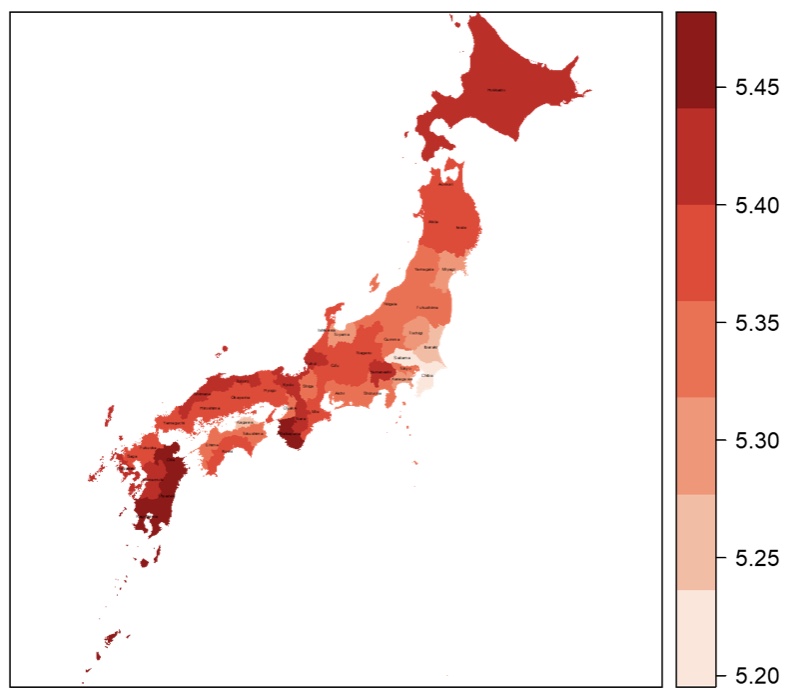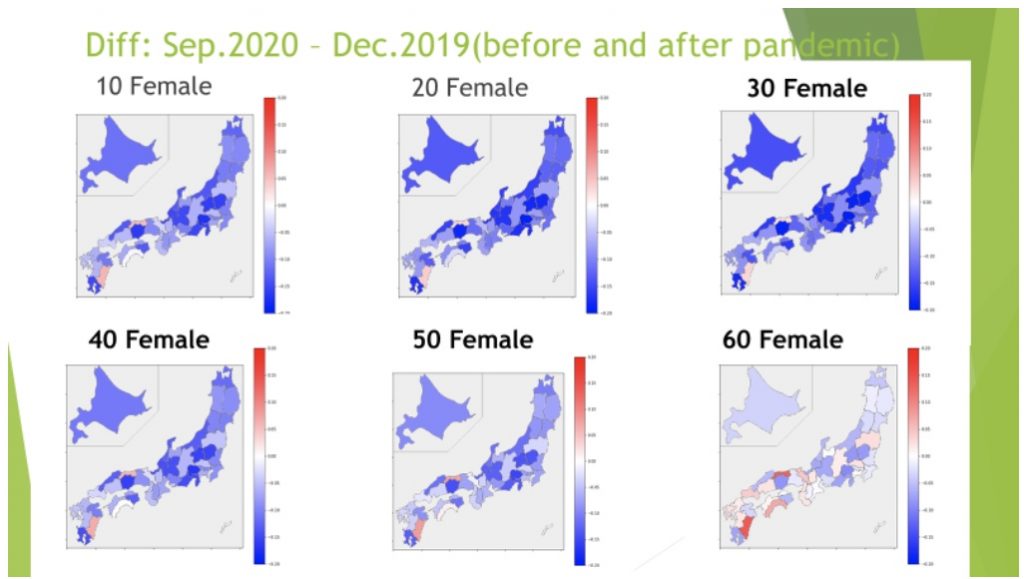We conducted happiness surveys for around 22,000 respondents all over Japan on the three periods in Dec. 2019, Sep. 2020 and Dec. 2020. In this talk, we shall report the influences of COVID-19 on subjective well-being for Japanese evaluated based on the surveys before and after the outbreak. We applied a dynamic regression model that describes joint effects of individual and spatial factors to visualize space-time behaviors of Japanese subjective well-being. Namely we quantified the factors of happiness driven by individual factors, which are age, sex, income and so on, and those by spatial factors in prefectural levels after controlling the individual ones. Examining the dynamic changes of the individual and spatial factors on the three periods, we see that the COVID-19 outbreak in Japan has damaged the subjective well-being of young females most seriously and the crucial damages still are continuing especially for the low income group in them.
THEME
Dynamic panel analysis of subjective well-being in the COVID-19 outbreak in Japan.
- 代表者
- Yasumasa Matsuda(Graduate School of Economics and Management)

- Prefecture-level happiness evaluated in Dec. 2019 by s spatial model.

- Difference of female happiness between Sep. 2020 and Dec. 2019 evaluated by age and prefecture
